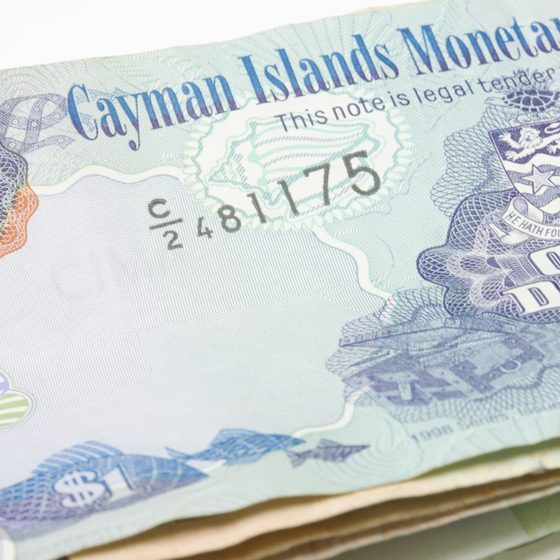How to Manage Retained Earnings in an Offshore Corporation
The key to maximizing the tax benefits of being offshore is to generate retained earnings in an offshore corporation. Retained earnings in an offshore corporation will allow you to accumulate (basically) unlimited amounts of tax differed dollars in your company.
If you have been reading my postings for a while, you know that anyone operating a business outside of the United States should be using an offshore corporation. You are also aware of the risks associated with these entities if not structured and reported correctly.
Operating a small business through an offshore corporation allows you to draw a salary of up to the Foreign Earned Income Exclusion (FEIE) amount, which is $97,600 for 2013. The offshore corporation also eliminates payroll or self-employment taxes, saving about 15% in most cases.
But, what if your business net profits exceed the FEIE amount? What if you earn $1 million? Must you pay tax on $902,400? The answer is yes; unless you structure your business from day one to provide for retained earnings in your offshore corporation, you will pay U.S. taxes on the income over and above the FEIE amount.
So, how do companies like Google defer tax on $10 billion with a Bermuda offshore structure? Why does Bloomberg claim there is $1.2 Trillion (yes, Trillion, with a capital T) in untaxed profits offshore? These companies spend big money on political lobbying to protect the Active Financing Exception, which can be found in Section 954(h) of the U.S. Tax Code and was recently renewed in the Fiscal Cliff deal.
The Active Financing Exception allows multinationals to create “friendly” offshore banks which actively lend and invest in the controlled group’s international divisions. The profits of this bank can be retained offshore indefinitely, or until the parent decides to repatriate these profits to the United States.
The Active Financing Exception works great for the world’s largest companies, but what about the rest of us? How can we use an offshore corporation to defer U.S. tax on our business profits? We must generate retained earnings in our offshore corporation from an active business.
How to get Retained Earnings in an Offshore Corporation
In order to get tax deferred retained earnings in an offshore corporation, you must first:
1. Be living and working abroad and qualify for the FEIE,
2. Operate through a properly structured and maintained offshore corporation,
3. Generate ordinary / active business income in excess of the FEIE,
4. Pay yourself a salary of up to the FEIE amount,
5. Retain profits in excess of the FEIE in the corporate bank account,
6. Pay tax in the U.S. on those retained earnings in your offshore corporation when you take them out in the form of dividends or other payments.
This first step, to be living and working abroad while qualifying for the FEIE, is covered in great deal on this website. Click here for additional information on the FEIE for 2013.
If you are an American who may generate retained earnings in an offshore corporation, you should begin your business with the proper structure…and that structure should be created by a U.S. international tax expert. Please contact us at (619) 483-1708 or info@premieroffshore.com for a confidential consultation to design your offshore structure.
The basics of a properly structured offshore corporation are these: you must utilize a corporation (not an LLC, Foundation, Partnership, or other pass-through entity), which is incorporated in a country that will not tax your profits. It does not matter where you live, or where you operate your business (unless you provide professional services, see below), you should incorporate in a tax free jurisdiction such as Belize, Panama, or Nevis.
You must report your activities and retained earnings of the offshore corporation on IRS Form 5471, report your foreign bank account, and keep up on all other U.S. reporting requirements. As your profits grow, so do the penalties for failing to properly report your activities. See the list of filing requirements below.
You may generate retained earnings in an offshore corporation from ordinary / active business profits. Ordinary business income is income received from the sale of a product and must be attributable to the normal and recurring operations of the company.
Next, you should pay yourself a monthly salary up to the FEIE amount. If a husband and wife are both operating the business, they can each draw $97,600 for 2013, and leave the rest of the money in the corporation.
The remainder of your net profits is to be held in the corporate bank account and become your tax deferred retained earnings. By creating retained earnings in an offshore corporation, you are deferring U.S. tax on those profits. In most cases, you must pay tax when funds are withdrawn from the corporation.
- One possible exception would be paying out retained earnings as salary in future years where those salaries benefit from the FEIE. The availability of this option would depend on a number of factors and your bona-fide business must be ongoing (see below).
Four rules that allow you to hold retained earnings in an offshore corporation
Rule 1: Understand the U.S. tax regulations regarding retained earnings in your offshore corporation.
The theory behind an offshore corporation is simple: these are not U.S. entities, so the IRS has no right to tax them. Not to be deterred by such a technicality, the IRS goes after the shareholders, not the entity.
The U.S. claims authority over anyone with a U.S. passport, no matter where they live. Our government has enacted a number of laws controlling how and when U.S. citizens must pay tax on earnings from or retained in offshore corporations.
If you are going to generate retained earnings in your offshore corporation, there are two international tax code sections you should be familiar with:
Controlled Foreign Corporation (CFC): If a U.S. person holds 10% or more of the stock (or voting control) of an offshore corporation, and U.S. persons hold more than 50% of the shares or control of that company, then U.S. persons can defer tax on active income, but not passive income.
In other words, if American(s) control an international business, then that business may defer U.S. tax on retained earnings in an offshore corporation from active / ordinary activities, not from investments. If less than 50% of the business is owned by U.S. citizen(s), then the CFC rules do not apply. For Deloitte’s worldwide CFC guide, click here.
The CFC rules also limit deductions and control how retained earnings are taxed upon distribution:
- Passive income from interest, dividends, investments, etc. is not active income, thus no U.S. tax deferrals are available. Passive income flows through to the shareholders of a CFC and is taxable on your personal return.
- When you distribute retained earnings from a CFC, they are taxed at your marginal rate. Long term capital gains rates (currently 20% for 2013) are not available.
- Losses in a CFC do not flow through to the shareholders. Losses are not deductible until the company is liquidated.
- If you die holding shares in a CFC, your U.S. heirs do not get a stepped up basis. When they sell the shares, they will pay tax on their value when you acquired them, not when they inherited them.
Passive Foreign Investment Company (PFIC): If you or your offshore corporation generates high levels of passive income, or invest in non-U.S. mutual funds, a complex tax regime may be imposed on those earnings.
Basically, you can elect to pay U.S. tax on the appreciation in your investment account each year, or you can pay U.S. tax on the gain when you sell funds or shares from your account. If you elect to pay tax when you sell, a punitive interest rate is added to the tax due to eliminate any benefit from deferral.
PFIC rules are complex and I consider them in their most basic form here. My intention is to let you know of their existence and warn you that passive income in an offshore corporation is not tax exempt or deferred. If you hold a U.S. passport, America gets a piece of your investment profits. The only major tax benefit available to the offshore entrepreneur is for active business income.
Rule 2: Have a bona-fide offshore business
You must be operating a bona-fide business if you wish to hold tax deferred retained earnings in your offshore corporation. In its most basic form, this means you should be selling something on a regular and continuous basis, you should make a profit in at least 3 of the last 5 years, you should be working at the enterprise full time, and it must be a business and not a hobby.
You should be selling a product, not providing a professional service. A professional service which is performed outside of your country of incorporation and generates income from technical, managerial, engineering, architectural, scientific, skilled, industrial, or commercial activities is not bona-fide ordinary income for U.S. tax purposes.
If you are operating a consulting or professional service business, you may utilize the Foreign Earned Income Exclusion, but you are not allowed to hold retained earnings in your offshore corporation. For additional information, see Section 4.61.24 and 25 of the IRS CFC Audit Guide.
A hobby is an activity you do for entertainment and does not have a significant profit motive. Here are a few factors use to determine if you have a business or a hobby:
- Does the time and effort put into the activity indicate an intention to make a profit?
- Do you depend on income from the activity?
- If there are losses, are they due to circumstances beyond your control or did they occur in the start-up phase of the business?
- Have you changed methods of operation to improve profitability?
- Do you and your advisors have the knowledge needed to carry on the activity as a successful business?
- Have you made a profit in similar activities in the past?
- Do you expect to make a profit in the future from the appreciation of assets used in the activity?
As you can see, the most important component in the hobby vs. business analysis is your profit motive. Your bona-fide business must generate significant profits over a number of years or risk being classified a hobby. This can be an issue for a business with one big year, followed by losses in all subsequent years.
Of course, this bona-fide business must be operated outside of the United States. The U.S. owner and operator must be living and working abroad and qualify for the Foreign Earned Income Exclusion in order to generate retained earnings in their offshore corporation.
An offshore corporation may have shareholders who live in the United States. These shareholders must be passive investors, having no control over the company’s day to day operations. The offshore corporation should not have a U.S. office or employees. Nor should it have any U.S. agents working exclusively to market or distribute its goods in the United States.
NOTE: A bona-fide business rarely includes individuals who trade their own investment accounts. This is the number one question I get at conferences and in emails – though I have had only one client in 12 years who was a professional trader. Unless you are working full time at your trading business, you are not considered a trader in securities. And, unless you are a professional trader, you may not utilize the Foreign Earned Income Exclusion, or generate retained earnings in an offshore corporation from your investment activities.
Rule 3: Keep records as if you were in the United States
Remember that you must file U.S. tax returns and therefore may be audited by the IRS. Your offshore business must maintain records of income and expense in accordance with U.S. accounting principles. If you can’t prove your expenses, they may be denied by the Service.
For additional information on accounting for business expenses, see IRS Pub 535. For a list of small business tax deductions, click here.
Rule 4: Know your reporting requirements
Offshore corporations must file a number of U.S. tax forms. Failure to file can result in some very draconian penalties.
- Form 5471 – Information Return of U.S. Persons with Respect to Certain Foreign Corporations (http://www.irs.gov/pub/irs-pdf/f5471.pdf).
- Form 926 – Report of Transfer to Foreign Company should be filed when you fund the offshore corporation (http://www.irs.gov/pub/irs-pdf/f926.pdf).
- Form TD F 90-22.1 – Report of Foreign Bank Account(s) if you have more than $10,000 offshore (http://www.irs.gov/pub/irs-pdf/f90221.pdf).
- A foreign corporation or limited liability company should review the default classifications in Form 8832, Entity Classification Election and decide whether to make an election to be treated as a corporation, partnership, or disregarded entity (http://www.irs.gov/pub/irs-pdf/f8832.pdf).
- Form 8858 – Information Return of U.S. Persons with Respect to Foreign Disregarded Entities (http://www.irs.gov/pub/irs-pdf/f8858.pdf).
- Form 5472 – Information Return of a 25% Foreign-Owned U.S. Corporation (http://www.irs.gov/pub/irs-pdf/f5472.pdf).
- Form 8938 – Statement of Foreign Financial Assets was new for tax year 2011 and must be filed by anyone with significant assets outside of the United States.
(http://www.irs.gov/uac/Form-8938,-Statement-of-Foreign-Financial-Assets).
Conclusion
The risks and rewards are great when doing business offshore and generating retained earnings in an offshore corporation. If the business is properly structured, you may be able to eliminate or defer U.S. tax on 100% of your active income. However, most of these tax rules are “all or nothing.” If you miss qualifying for the FEIE by one day, you lose 100% of the benefit. If you use the wrong type of structure, the ability to retain earnings offshore is gone. If fail to accurately and completely report your activates, you may face enormous penalties from the IRS – possibly hundreds of thousands of dollars.
The U.S. licensed tax experts and international attorneys at Premier Offshore, Inc. give you the best of both worlds – unparalleled offshore know-how combined years of experience in dealing with the IRS. Please contact us at info@premieroffshore.com or (619) 483-1708 for a confidential consultation on any aspect of offshore corporate formation and tax law.
Recent Articles (External Links)
Because of the tough economic times most American’s have experienced in recent years, much ado has been made of multinationals use of offshore tax tools to hold out on Uncle Sam. Here are a few articles on this topic, most of which are quite biased against the entrepreneur.
- Caterpillar’s Fiscal Cliff Tax Breaks
- Fiscal Cliff Business Tax Breaks
- Business Roundtable on the Fiscal Cliff
- Technical Presentation on the Active Financing Exception
- U.S. Banks and the Active Financing Exception
- Lessons from the Fiscal Cliff
Older Articles (External Links)












Leave a Reply
Want to join the discussion?Feel free to contribute!